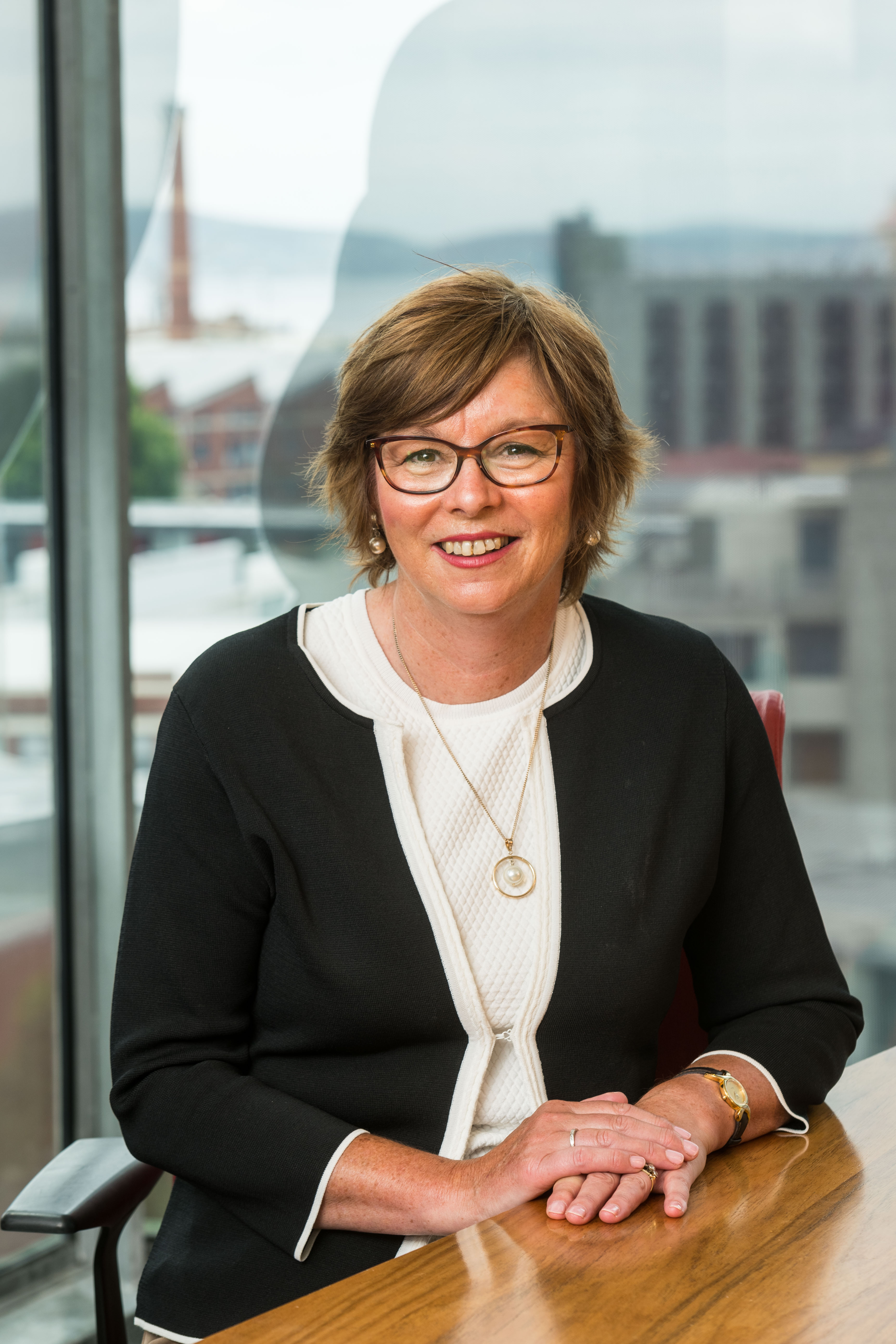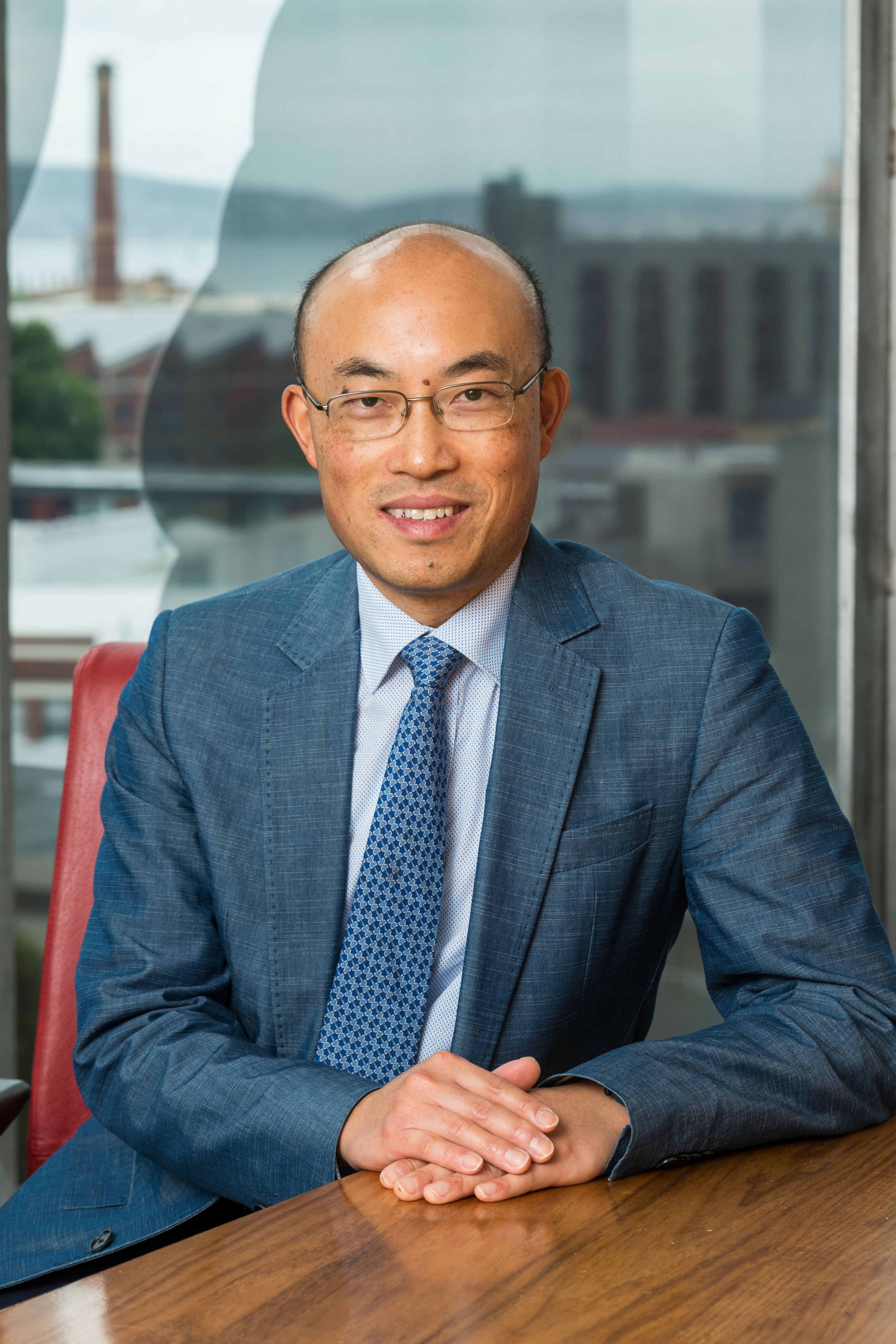The Menzies Institute for Medical Research at the University of Tasmania, is one of Australia’s leading health and medical research institutes.
We strive for a world where the diseases that currently touch every Tasmanian – such as multiple sclerosis, dementia, arthritis, heart disease and cancer – are halted. How to prevent, treat and cure these diseases is known, and the benefits are available to everyone.
We work collaboratively with the community and consumers, other researchers, health services, government, industry and funders to achieve our purpose of enabling healthier, longer and better lives for Tasmanians through internationally significant medical research.
We undertake excellent laboratory, clinical and population health research in themes that reflect the burden of disease in the Tasmanian community and our expertise in addressing these conditions. Our local research is of global significance.
Research themes
We aim to improve the health of Tasmanians through research that addresses our high rates of preventable chronic disease and the social factors that affect health, leveraging Tasmania’s unique genealogical resources that support genetic research.
Director, Professor Tracey Dickson

Professor Tracey Dickson is a neuroscientist specialising in neurodegenerative diseases, particularly determining the cellular mechanisms underlying Motor Neuron disease and Parkinson’s disease. In January 2022, she was appointed as Director of the Menzies Institute for Medical Research, at the University of Tasmania – the first Tasmanian to be appointed to this prestigious role.
Tracey grew up on the North West Coast in Burnie and completed her BSc (Hons) and PhD at the University of Tasmania, investigating the neuropathological changes that characterise early Alzheimer’s disease. She undertook post-doctoral training at the Mount Sinai School of Medicine, in New York City. Tracey has held both early and mid-career national Fellowships, and has an extensive track record in securing research funding through the NHMRC and ARC as well as through organisations such as Motor Neuron Disease Australia, and Fight MND. She has held the roles of Deputy Director at Menzies and Associate Dean Research within the College of Health and Medicine. Through her research Tracey has worked closely with community organisations throughout Tasmania and is deeply committed to community engagement.
Our Board
- More information is available above at Director.

Professor Fassett is the Executive Dean of the College of Health and Medicine at the University of Tasmania and she was the former Dean of the Faculty of Health Science. She is a Registered Nurse with a PhD and was Head of Nursing and Midwifery from 2006 until 2011. Denise has a long background in Nursing and Midwifery regulation and public health governance including positions such as Chair of the Nursing Board of Tasmania and a member of the Nursing and Midwifery Board of Australia for nine years. She is currently the Chair of the Nursing and Midwifery Accreditation Committee. She served as a governing council member with the Tasmanian Health Service North and later as a member of the THS Governing Council. She was the inaugural Chair of the Health Council Tasmania and is currently an ex-officio member of the Clinical Executive Sub-Committee (Department of Health Tasmania).

Professor Koutoulis completed his BSc(Hons) and PhD at the School of Botany, University of Melbourne. He undertook post-doctoral research at the University of Adelaide and Worcester Foundation for Biomedical Research in Massachusetts before joining the University of Tasmania in 1996. With an international reputation in hop research, Professor Koutoulis' work spans cell and molecular biology, plant breeding, genetics, analytical chemistry and biotechnology.
Professor Koutoulis has also maintained a strong teaching practice over the last 20 years. He has developed courses and undertaken major curriculum reviews in the Biological Sciences and is a strong advocate for the role universities play in both developing individuals and transforming societies.
Professor Koutoulis has served in senior roles for over 15 years at the University and is currently Deputy Vice-Chancellor (Research).

Pip is an experienced health service executive who has held policy development, purchasing and operational management roles. She has a keen interest in translational research and health system reform particularly in the broader primary health arena and its interface with the acute and aged care sectors. Prior to ceasing full-time employment with the Department of Health and Human Services, she was a deputy secretary. Pip is currently a member of the University of Tasmania Council, Vice President of Tennis Tasmania and a non-executive director of the Australian Osteopathic Accreditation Council. She is a former member of the Tasmanian Institute of Sport Board, the National Council of the Australian Hospitals and Healthcare Association and the Department of Health Audit Committee. Pip has a Bachelor of Economics, Master of Business Administration and is a graduate of the Australian Institute of Company Directors.

Professor Stephen Tong is a clinician-scientist (specialist obstetrician) at the Mercy Hospital for Women and the University of Melbourne. A NHMRC Practitioner’s Fellow, he is also co-director of Mercy Perinatal, a leading national centre for pregnancy research, education and clinical care.
He is strongly focused on translational research - developing new diagnostics and treatments to tackle major complications that threaten the lives of mothers and babies. His team has taken several laboratory therapeutic discoveries to international clinical trials currently running in the United Kingdom, South Africa, New Zealand, and across Australia. These include drug treatments for ectopic pregnancy and preeclampsia.
Funded by an NHMRC Synergy Grant (which he holds as the chief investigator), his team is undertaking a program of research to develop a blood test to help women avoid stillbirth.
His current network of collaborations for major prospective studies and clinical trials spans South Africa, New Zealand, Sweden, the United Kingdom (60+ hospitals), New Zealand, Chile, Solomon Islands, Pakistan, and across Australia.
He has published over 180 papers, including recent papers in Lancet, Nature Communications, Human Reproduction Update; 10 publications in Hypertension, BMC Medicine and others. He has been awarded three NHMRC Achievement awards (Top ranked Fellowships in 2007, 2012 and 2017) and previously received eleven NHMRC project grants since 2011 (six as chief investigator A).

Professor Geoffrey Donnan AO is Professor of Neurology, University of Melbourne, and former Director of The Florey Institute of Neuroscience and Mental Health (2009-2018). He is currently Co-Chair of the Australian Stroke Alliance, a collaboration of more than 30 organisations with the aim of improving acute prehospital stroke care for all Australians.
Professor Donnan has a major research interest in acute stroke management, both its clinical and experimental aspects. He showed that brain tissue could have prolonged survival after stroke and, when salvaged, improved clinical outcomes. This provided the rationale for acute stroke therapies. He conducted the first clinical trials of clot dissolving agents (thrombolysis) in Australia and has been a leader in these trials worldwide, leading to the introduction of thrombolysis as the first and most effective form of therapy for acute stroke. Latterly, he has also been a leader in trials of thrombectomy (clot removal by catheter) in acute stroke, one of the most effective interventions in modern medicine.
National contributions have included founding President of the Stroke Society of Australia, President of the Australian Association of Neurologists and Founding Co-Chair of the Australian Stroke Trials Network and Neuroscience Trials Australia. He also was involved with the establishment of Neurosciences Victoria and the Australian Clinical Trials Alliance, serving on their founding boards.
Professor Donnan has been involved in a number of international initiatives. He was President of the World Stroke Organization (2006-8) and was involved in the establishment of the World Neurology Foundation and the World Stroke Foundation (Secretary). He is currently a member of the selection committee for the annually awarded Brain Prize, the most prestigious and valuable prize in neuroscience worldwide. He has chaired the scientific/executive committees of a number of international meetings including the 6th International Symposium on Thrombolysis and Acute Stroke (2000), World Stroke Congress (2000) and World Congress of Neurology (2005) and was co-chair of the Education Committee for the World Stroke Congress, Vienna (2008). He has received a number of prestigious international awards including the William Feinberg Award (USA, 2007), World Stroke Organization Leadership Award (2012), Karolinska Institute Award (Sweden, 2012) and European Stroke Congress Wepfer Award (2014). He is a founding Fellow of the Australian Academy of Health and Medical Sciences.

Rebecca is the Managing Director/Chief Executive Officer of Aurora Energy the Tasmanian state-owned energy retailer. Rebecca has significant executive experience in the utilities sector in Australia and New Zealand in both the public and private sectors. Rebecca also has non-executive director experience in the not-for-profit sector and with industry bodies.
Rebecca is passionate about creating and realising value for customers, organisations, employees, shareholders and the broader community. She has proven performance in the creation and execution of strategy, which is supported by her strong ability to collaborate, constructively challenge, facilitate change, and culture leadership.
Rebecca holds a Master of Business Administration, and a Bachelor of Computer Science and is a member of the Australian Institute of Company Directors.
Edward is an experienced executive who has held roles in finance, marketing consulting, and heavy industry and manufacturing over the past thirty years. Edward’s most recent executive role was with Australian investment advisory firm Evans and Partners where he was a Partner and Executive Director during a decade with the business. He has extensive experience advising high-net-worth individuals, not-for-profit organisations and family groups on their investment strategies.
Edward is a non-executive director of Maddie Riewoldt's Vision, a former director of Cricket Tasmania, former director and Chair of The Primary Club of Australia (Victoria) and produces and hosts ‘The Wide Open Road’ Podcast series focusing on athlete transition to life after sport.
He graduated from the University of Tasmania with a Bachelor of Arts, has a Graduate Diploma of Marketing from Monash University and is a Member of the Australian Institute of Company Directors.
Latest news
Read more newsPublications
Latest bulletin
The Menzies Research Institute Tasmania publishes the Bulletin four times a year, containing news on research success, new research projects, fundraising events and other Institute activities.
Sign-up for our bulletin
Contact us
Street address
Medical Science Precinct
17 Liverpool Street Hobart
Tasmania
Postal address
Medical Science Precinct
17 Liverpool Street Hobart
TAS 7000 Australia
For information on parking options near Menzies visit the Hobart City Council.